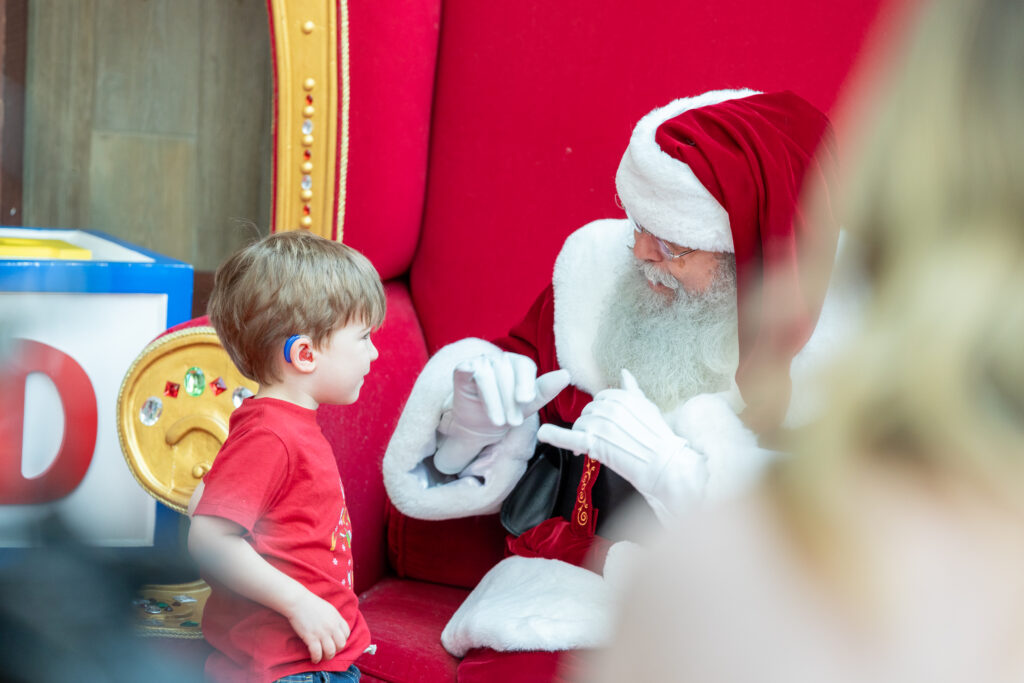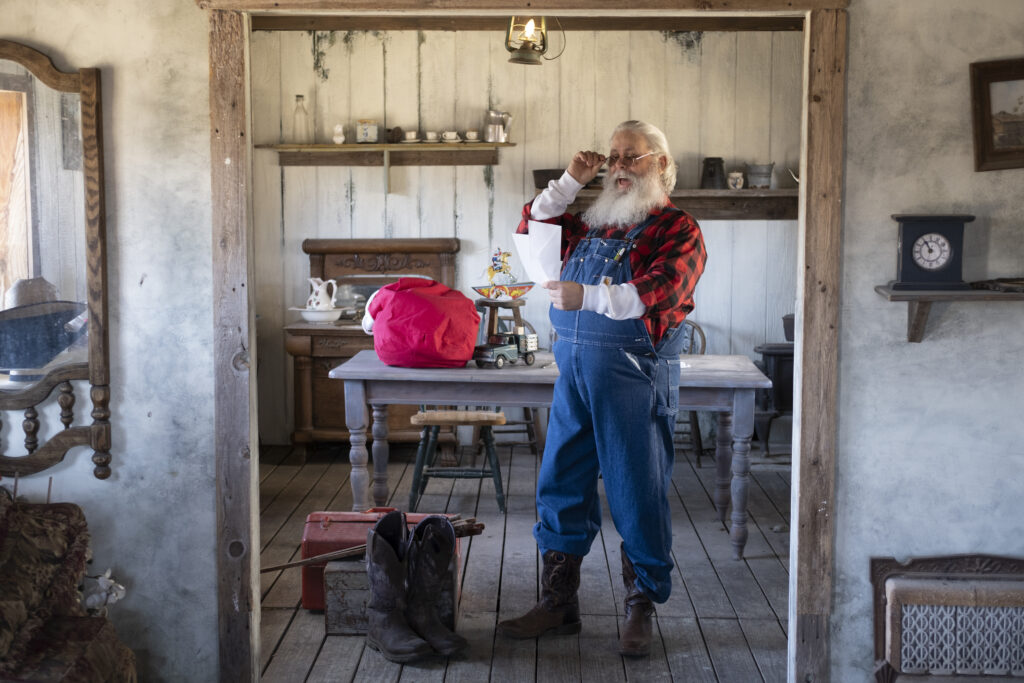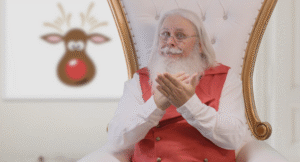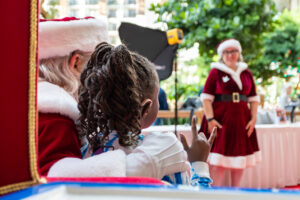For many children, the holidays mirror everyday life at the dinner table – full of conversation, but not always full of access.
At the Deaf Santa Claus Foundation, we remind ourselves often that the story doesn’t begin at the mall or in a holiday photo. It begins at the dinner table. That’s where bonds are built, where stories are swapped, and where a child first learns what it feels like to belong.
For some children though, belonging can be complicated. More than 90% of children who are Deaf, hard-of-hearing, or have some form of hearing loss are born to hearing parents, and most of those families and friends never learn sign language. Dinner can turn into what is called “dinner table syndrome” – when the conversation flows around the table but the child is left out. Imagine being surrounded by laughter and stories but catching only fragments. That isn’t just a holiday problem. It’s an everyday reality.
Why It Matters Beyond the Table
Language is connection. Without it, children don’t just miss the punchline, they miss the lessons, the confidence, and the identity that grow out of shared conversation. Research shows individuals with hearing loss face higher risks of underemployment, educational barriers, and mental health struggles later in life. None of this starts at the job interview or the classroom. It starts at home.
That’s why holiday traditions matter. If we can reimagine something as ordinary as a dinner table, or as magical as a visit with Santa Claus, we can change how all children grow up feeling about themselves.
A Santa Claus Who Signs
In an interview with DCist, Charles Graves, the Deaf Santa Claus who has met thousands of children, explains, “Each child deserves to see a Santa Claus that they can understand and relate to.”
As co-director Anthony Mowl shared with The Washington Post: “For Deaf children, seeing Santa sign can be transformative. They don’t just see a Santa Claus. They see themselves.”
Building Inclusive Traditions
So what does this mean for families today? It means the holiday table can be a place of inclusion instead of isolation. It means that when Santa Claus signs “Merry Christmas” or “Happy Holidays,” every child’s eyes can light up because the magic includes them. And it means that traditions, both big and small, can become opportunities to say: You belong here.
That’s the mission of the Deaf Santa Claus Foundation—to spark traditions that leave no one feeling alone at the table.




